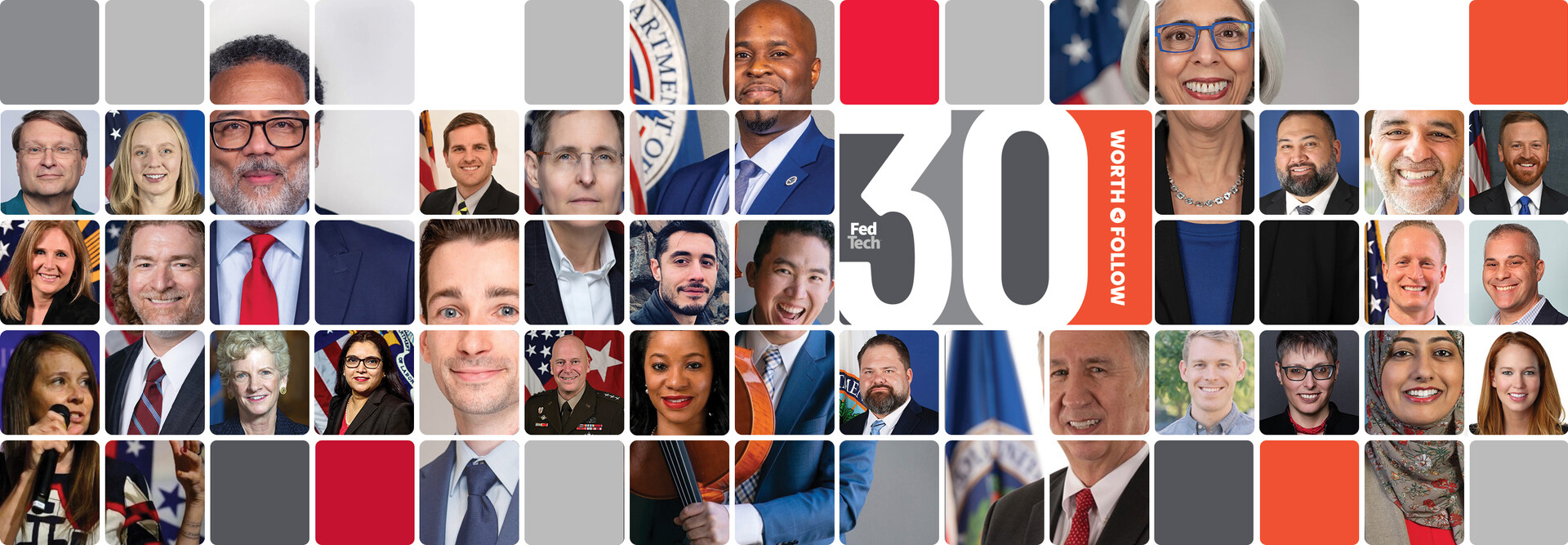30 Federal IT Influencers Worth a Follow in 2024
The first thing you’ll notice about the 2024 iteration of FedTech magazine’s influencer list is the emergence of chief artificial intelligence officers, who are spearheading chatbot, generative AI and large language model efforts within the federal government.
Some agencies, such as the Department of Health and Human Services, were quick to follow industry in appointing a CAIO to boost data interoperability, streamline processes, improve citizens’ access to government benefits and services, and assess the impacts of their initiatives.
Others did so in response to the Office of Management and Budget’s memo requiring agencies to fill the role by the end of May.
Whatever the case, it’s clear CAIOs will shape agencies’ AI journeys moving forward and join the ranks of the other influential IT professionals — CIOs, CTOs, chief data officers and CISOs — who populate this list. Give them a follow if you’re looking for updates on federal IT and cybersecurity projects, guidance and job opportunities.
Click the banner below to discover how federal agencies can provide a modern digital experience.
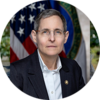
The longtime IT professional and Department of Energy CIO is a great resource if you’re looking for the latest guidance on everything from IT modernization to zero-trust security. Ann Dunkin’s recent priorities include modernizing DOE’s HR systems, finishing a Windows 11 migration and refreshing high-performance computing hardware.
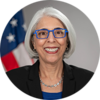
Arati Prabhakar is director of the White House Office of Science and Technology Policy. She previously led the National Institute of Standards and Technology and the Department of Defense’s Advanced Research Projects Agency. Her expertise in emerging technologies has been a guiding light for the White House’s regulatory approach to AI thus far.

Chandra Donelson found herself wearing many new hats this year as the Space Force’s chief data and AI officer and director of data for AI and software. She also serves as Air Combat Command’s senior enlisted leader for data AI and innovation. When she’s not establishing data policies, frameworks and standards or implementing AI solutions, she’s writing children’s books on data literacy.

Charles Worthington is CTO and CAIO at the Department of Veterans Affairs. He has more than a decade of experience in mobile and web security for federal agencies, having helped build up the U.S. Digital Service during his time as a White House senior adviser.

David Shive has been CIO of the General Services Administration since 2015. When he’s not touting the government’s successful digital transformation at scale with projects such as Login.gov, you might find him sharing federal IT openings on social media.
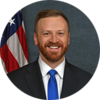
Garrett Berntsen departed the State Department after nearly four years to become the DOD’s deputy CDAO. He’s an expert on the intersection of national security and emerging technology, and regularly promotes his office’s work and job openings.

Upon taking the job as CIO of the Office of Personnel Management, Guy Cavallo prioritized a two-year sprint to the cloud. USAJobs moved to the cloud in May, allowing OPM’s AI solution to more effectively pull data, and now the agency is testing an online retirement application platform.

Harry Coker Jr. is national cyber director in the Executive Office of the President. Having previously held leadership roles at the CIA and National Security Agency, he has extensive experience on matters pertaining to national security, federal cybersecurity and government IT innovation.

As a presidential appointee, Jen Easterly will vacate her post as the director of the Cybersecurity and Infrastructure Security Agency when President Trump takes office on Jan. 20. But during her tenure, she oversaw secure-by-design initiatives and the release of guidance on AI and quantum information sciences, and she’s expected to continue championing cyber wherever she lands next.

Jim Richberg is head of cyber policy and global field CISO at Fortinet. He’s a leading expert in cybersecurity, cyber intelligence and supply chain security. Richberg is entrenched in federal IT, having previously worked at the CIA and in the Office of the Director of National Intelligence.

Lt. Gen. John B. Morrison Jr. is Army deputy chief of staff, G-6, the principal advisor to the Army chief of staff on command, control, communications, computers, cyber and IT worldwide. He has deep expertise in IT innovation and network modernization. Among other accomplishments, he played a pivotal role in the development of the Army’s unified network.

Once the Department of Agriculture’s CIO, Jonathan Alboum is now the federal CTO and principal data strategist at ServiceNow. His work involves improving agencies’ digital experience and productivity with new workloads, and you’ll likely recognize him from your favorite federal IT podcast or the webinar circuit.

In her second year as State Department CIO, Kelly Fletcher ushered in the Bureau of Diplomatic Technology to help diplomats improve customer experience and cybersecurity, and launched a purpose-built AI chatbot. She routinely takes to social media to share updates.
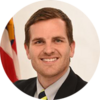
Having helped stand up the Advanced Research Projects Agency for Health, or ARPA-H, in 2023, Kevin Duvall has landed in a part-time role as senior executive for technology and delivery at the Department of Health and Human Services, supporting data strategy and AI capacity building and operations. That’s in addition to his longstanding role as CTO for HHS’s Administration for Children and Families; follow him for updates and job opportunities on both fronts.

The technologist behind the approximately $2 billion effort to modernize the Department of Labor’s unemployment insurance systems, Larry Bafundo took over as executive director of the Technology Modernization Fund this year. Under his leadership, the fund’s next chapter is expected to focus on AI, data management and cloud projects with governmentwide impact, so follow him for updates.

Laura Stanton is assistant commissioner for IT Category at GSA. She is a leading expert on federal IT acquisition, having previously served as the Federal Acquisition Service assistant commissioner. In 2024, she spearheaded efforts to transform federal software procurement.

Leslie Beavers is acting CIO of DOD. She has played pivotal roles in Project Herald, the Pentagon’s initiative to transform digital intelligence sharing, and Fulcrum Strategy, the IT modernization effort announced in spring 2024.

Luke Farrell is both the product lead at the U.S. Digital Service and senior adviser for technology and delivery to the Domestic Policy Council. In the past year, his work helped renew Medicaid for more than 6 million children and families by streamlining the paperwork process.

Mangala Kuppa started this year by taking over as the CTO and CAIO of the Department of Labor, which saw its Federal IT Acquisition Reform Act scorecard grade jump from a B to an A. Under her leadership the agency created an AI Compliance Plan and released an AI best practices document, and she’s applying a union-partner approach to the technology.

Micky Tripathi is assistant secretary for technology policy, the national coordinator for health IT and acting CAIO at HHS, responsible for pursuing interoperability between the country’s many, disparate electronic health records and setting AI standards in healthcare. His X account, in particular, features discussions on developing accurate health AI models.

Mitchell Thornbrugh is CIO at the Indian Health Service. He has played a critical role in the agency’s transition from its 40-year-old Resource and Patient Management System to the newly minted Patients at Heart (PATH) EHR, which will pilot at three sites in 2025. Thornbrugh is a leading expert in federal health IT.
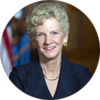
Robin Carnahan is the administrator of GSA. She has deep expertise in federal acquisitions, sustainability, budgeting and cybersecurity. She is also an advocate for the use of innovative technology in government and has played an important role in promoting AI skills development and hiring at GSA.

The newest federal CIO on the block, Sairah Ijaz announced that her acting role at the Department of Housing and Urban Development had become permanent on Nov. 16. Her priorities are implementing innovative solutions and enhancing HUD’s security posture; already, under her leadership, the agency has improved information security effectiveness and received $19.8 million in TMF funding for an identity, credential and access management solution.

Sean Connelly is executive director of global zero-trust strategy and policy at Zscaler. He previously held leadership roles at CISA and the State Department. As co-author of NIST Special Publication 800-207 on Zero Trust Architecture, Connelly is one of the leading experts on zero trust.

Steve Faehl is CTO at Microsoft Federal Security, where he oversees cybersecurity initiatives such as combatting emerging threats and enhancing federal customers' cyber maturity. He possesses deep expertise in zero trust, critical infrastructure protection and security operations center modernization.

Steve Vetter, senior global strategist at Cisco, has held IT leadership positions within the Navy and the Office of the Secretary of Defense. Additionally, he has private sector experience in the areas of cyber resilience, critical infrastructure protection and business development.

Steven Hernandez is CISO at the Department of Education. His areas of expertise include cloud assessment and authorization, IT security, and policy and disaster recovery. Throughout 2024, he has made implementing a zero-trust architecture a key IT priority for the department.

Taka Ariga was the Government Accountability Office’s first chief data scientist before assuming the CDO role at the Office of Personnel Management in September. He became acting CAIO a month later. He views his job as bringing data governance, data science and AI together to make human capital services as effective as possible.

Wendi Whitmore is senior vice president of Unit 42 at Palo Alto Networks and an inaugural member of the Department of Homeland Security Cyber Safety Review Board. She is a highly accomplished cybersecurity leader and one of the industry’s leading experts in federal threat intelligence, threat hunting and incident response.
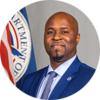
Yemi Oshinnaiye is CIO at the Transportation Security Administration. He has more than a decade of experience with public sector IT at the federal level, including a leadership role within DHS. His areas of expertise include managed services, agile development, IT modernization and systems architecture.



